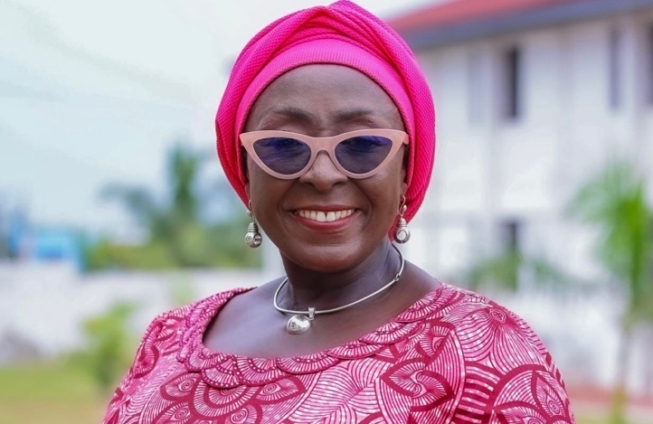Chaos in Parliament During Ministerial Vetting as Dzifa Gomashie Apologizes for Incident

An unexpected and disruptive altercation unfolded in Parliament yesterday during the highly anticipated vetting of ministerial nominees. What was meant to be a routine parliamentary session soon spiraled into chaos as tensions between the Majority and Minority caucuses reached a boiling point, resulting in a scene of overturned tables, broken microphones, and heated verbal exchanges.
The altercation, which disrupted the proceedings for a significant amount of time, involved aggressive confrontations between lawmakers from both sides of the aisle. Members of the Majority and Minority caucuses exchanged sharp words, which escalated to physical disruptions that saw tables knocked over and microphones damaged. The disorder in the chamber was not only a disruption to the parliamentary process but also an embarrassment to the lawmakers involved, as their actions were witnessed by both their colleagues and the public.
Among those caught up in the fracas was Abla Dzifa Gomashie, the Member of Parliament for Ketu South, who has also been nominated as the Minister for Tourism, Culture, and Creative Arts in the new administration. Gomashie, who was present during the session, appeared visibly frustrated and engaged in the heated exchange. Footage of the incident quickly circulated on social media, capturing her expressions of displeasure as the confrontation unfolded.
In the aftermath of the chaotic scenes, Dzifa Gomashie took to the media to address the public, acknowledging the significant disappointment the incident caused among many Ghanaians. She offered a heartfelt apology, acknowledging the emotional and reputational toll the disruption had on the institution of Parliament and the people of Ghana. Her public response aimed at mending the negative impact of the altercation and reinforcing her commitment to accountable and responsible leadership.
Speaking to reporters, Gomashie remarked, “We are sorry. Ghanaians should give us another chance.” Her words, delivered with a tone of regret, were intended to soothe the public’s concerns and rebuild trust in her and her fellow lawmakers. She emphasized the importance of maintaining professionalism and discipline, particularly in the high-stakes environment of the parliamentary chamber, where such conflicts could undermine the credibility of the entire legislative process.
The incident, however, did not go unnoticed by the wider public, sparking a national conversation about the behavior and conduct of elected officials. Many citizens expressed disappointment at the lack of decorum exhibited by Parliamentarians, calling for stricter regulations and more effective measures to maintain order during parliamentary proceedings. The rowdy scenes were seen as a reflection of deeper issues within the legislative body, including partisan divisions, lack of effective leadership, and a breakdown in communication between lawmakers.
This disruption also highlighted the larger issue of the erosion of trust in political institutions, with many questioning whether those in power are truly committed to serving the best interests of the people. Critics of the incident pointed to the fact that such behavior only serves to further alienate the public from the political process, particularly in a time when national unity and productive discourse are more crucial than ever.
In response to the incident, there have been calls for Parliamentary leadership to address the underlying issues contributing to the breakdown in order. Several observers suggested that reforms be introduced to establish clearer guidelines for the behavior of MPs, particularly when it comes to ensuring that disagreements are resolved with civility and respect.
Meanwhile, some political analysts have argued that this altercation should serve as a wake-up call for Parliament to establish stronger mechanisms for conflict resolution, focusing on constructive dialogue and mutual respect rather than escalating tensions. Others have called for reforms aimed at improving the functioning of Parliament, ensuring that it remains a place where debates are robust but conducted with dignity and decorum.
Despite the uproar, Dzifa Gomashie’s apology has been seen as an attempt to restore some semblance of order and professionalism to the proceedings. Her plea for a second chance resonates with many who still believe in the potential of the country’s political leadership. However, it remains to be seen whether this will be enough to address the larger concerns surrounding the conduct of lawmakers and the health of Ghana’s parliamentary democracy.
As the dust settles from the chaotic scenes in Parliament, it is clear that the incident has had a lasting impact on public perceptions. The hope now is that Parliament can learn from this experience and move forward in a manner that better reflects the standards and values expected of its members.








